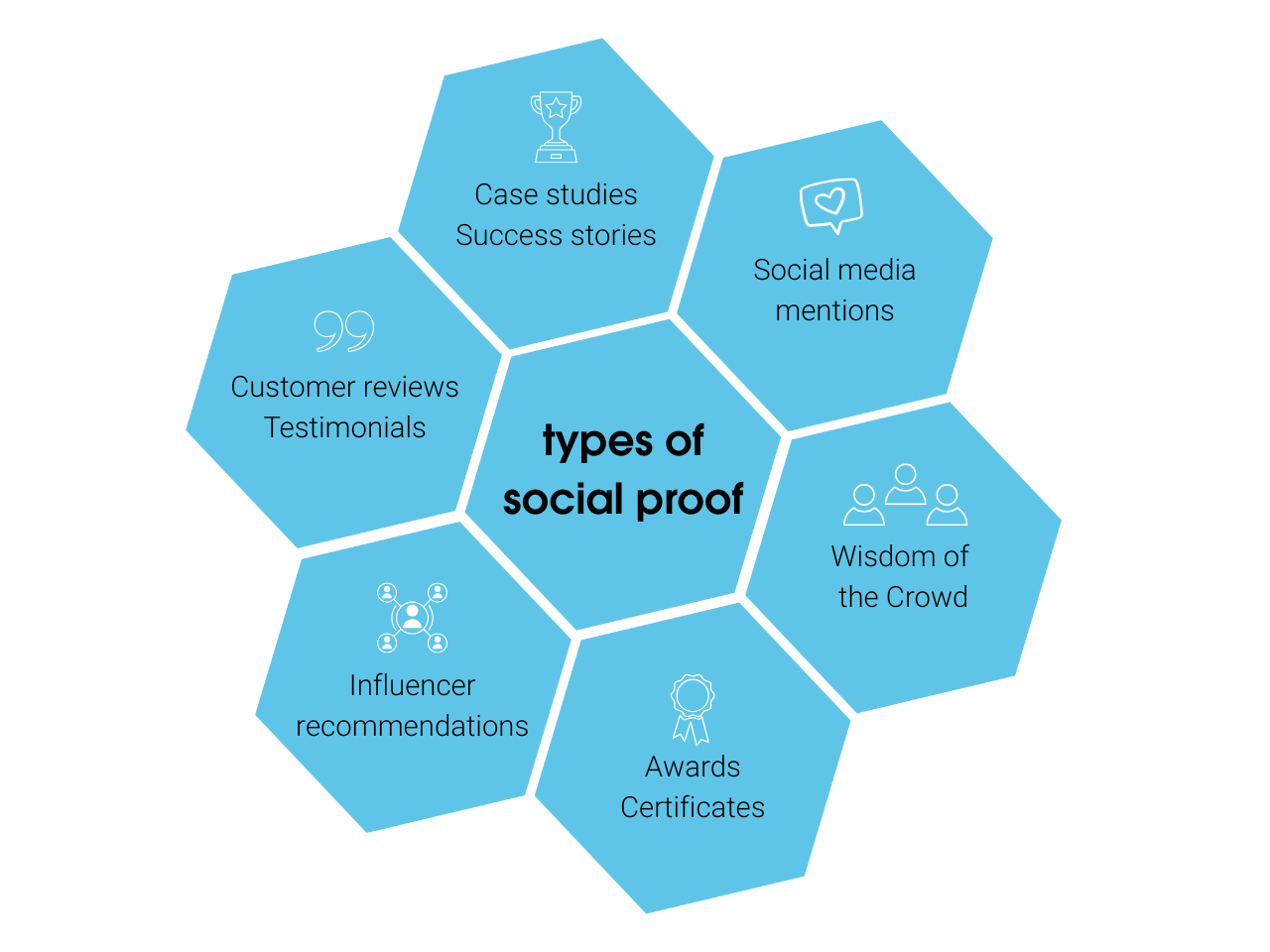Social media offers you many opportunities to promote your company in online marketing. Find out how it works here with us! ... Continue reading


Social proof describes a psychological principle: people orient themselves towards the behaviour of others in order to make decisions in uncertain situations. In marketing, this means that when potential customers see that others have purchased, positively reviewed or publicly recommended a product, they are more likely to take action themselves.
Bandwagon effect: The more people use or recommend something, the more right it seems to us – even subconsciously.
Especially in the online sector, where direct product experience is lacking, social proof is a central basis of trust. Reviews, follower numbers, awards or influencer recommendations signal: This product works and is valued!
There are many ways to use social proof effectively – here are the most proven formats:

Star ratings directly below the product significantly increase the likelihood of purchase.
The engagement rate is more important than the mere number of followers!
Social proof plays a central role in online marketing – especially when potential customers are unsure. It reduces doubt and builds trust by showing that others have already chosen your product or service.
Social proof is also a real conversion driver: real-time pop-ups such as ‘Just bought!’ can increase conversion rates by up to 15%.
Especially in markets with comparable offers, social proof helps you stand out from the competition – for example, through reviews, customer testimonials or user numbers.
Social proof is particularly effective in crowded markets where there are many alternatives available. Here, the trust factor is often the deciding factor – and that’s exactly where social proof comes in. Where you can cleverly integrate social proof.
| Advantage | Effect |
| More trust | Customers feel more secure |
| Higher conversion | More purchases, registrations, clicks |
| Increased brand awareness | Social sharing and mentions have a viral effect |
| Cheaper than advertising | UGC and reviews often cost nothing |
| Better SEO | More content, more keywords |
As effective as social proof is, not everything that works is allowed or fair. There are some pitfalls you should avoid at all costs if you want to build trust in the long term.
The most important rule: Stay transparent, honest and authentic. This is the only way social proof works in the long run – anything else is just smoke and mirrors and damages your brand trust.
To ensure that your social proof measures not only look good but also have a demonstrable effect, you should analyse their success on a regular basis. Clear KPIs (key performance indicators) can help you do this by showing whether your strategy is actually bearing fruit.
A key metric is the conversion rate before and after using social proof – for example, how sales or enquiries change when you integrate testimonials, reviews or real-time pop-ups. Engagement on social media posts with customer testimonials is also a good indicator: more likes, comments or shares indicate a stronger impact.
Other important metrics include the number of new reviews per month and the length of time spent on pages with integrated social proof, such as landing pages with customer reviews or logos of well-known customers.
A/B testing provides even more precise results: test page variants with and without social proof to obtain reliable data on the influence on user behaviour.
Tools such as Google Analytics, Hotjar, Meta Insights or specialised social listening tools are available for evaluation – they help you make the impact measurable and comparable.
| Company | Use of social proof |
| Booking.com | Real-time notifications such as ‘Just booked 5 times’ |
| Etsy | Display of users who currently have a product in their shopping cart |
| Skillshare | Highlighting the number of participants |
| Sensodyne | Recommendation by dentists on the website |
| Christy Dawn | Influencer & referral programme combined |
| Hiya Health | Combination of expert opinion & user feedback |
What is successful is what is authentic, visible and relevant to your target group.
Social proof is pure trust marketing. When you show that others love your products, it’s much easier for new customers to join, buy or sign up. It’s important that you:
Then social proof will become a real growth engine for your business! 🚀
Dr. Beatrice Eiring holds a doctorate in linguistics and studied German and business administration with a focus on marketing at the University of Würzburg. She is Head of Content Creation at eology GmbH and advises our customers on all content issues.
You want to learn more about exciting topics?



